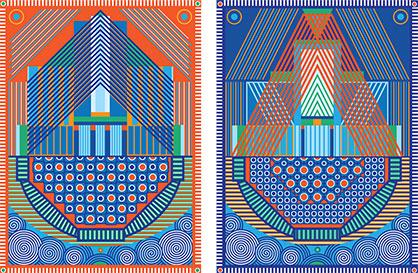
Holden Gallery
Manchester School of Art
Grosvenor Building
Cavendish Street
Manchester M15 6BR
07.02.20 - 27.03.20
Open Monday - Friday 12 noon - 6pm
Thursdays late opening until 7pm
https://www.holdengallery.mmu.ac.uk/2020/yelena-popova/
13 February: 5.30-7pm. Dr Patrizia Costantin, Dr Becky Alexis-Martin, Martha Lineham. Dr Petra Tjitske Kalshoven.
4 March: 5.30-6.30pm Yelena Popova conversation with Ele Carpenter.
The Holden Gallery presents Yelena Popova ‘The Scholar Stones Project’. Working across a range of media including painting, installation and tapestry, Popova’s interdisciplinary project addresses an ongoing fascination with nuclear history and materiality. The exploration into nuclear heritage reflects on Popova’s autobiographical history, having grown up in Ozyorsk, Russia, a secret closed city and the birthplace of the Soviet nuclear-weapons programme.
Over the last year Popova has been visiting decommissioned nuclear sites around the UK as part of a self-appointed enquiry. ‘The Scholar Stones Project’ is the culmination of her research, exploring the deep connections between our nuclear industry, the landscape and the passage of time.
A scholar stone is a naturally occurring or shaped rock that adheres to a set of aesthetic principles defined in Tang dynasty China (618-907 AD), which would be displayed and admired as objects of contemplation. As a contemporary response, Popova has gathered soil and stones from nuclear sites across the country, attempting to make this invisible industry tangible by drawing attention to these material objects and their correlation to time, geology and landscape. The exhibition includes a new series of paintings, created with pigments made using soil from Popova’s research sites, presented alongside scholar stones found at the same places.
Popova has also produced two new tapestries, Keepsafe (I and II), 2019, as propositions for mausoleums for the decommissioned reactors. These first generation Magnox reactors currently cannot be dismantled and will have to remain on the British coastline until at least the end of the century, bringing the question of our nuclear heritage to view.